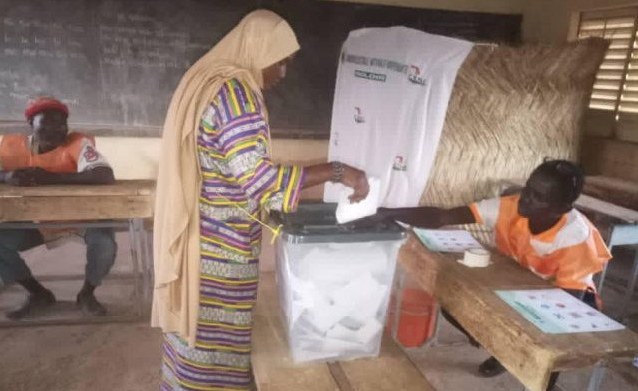If the election is a success it will be the first peaceful handover between elected presidents since Niger gained independence in 1960. President Mahamadou Issoufou is voluntarily stepping down after two five-year terms.
Nigeriens went to the polls on Sunday in the second round of the country’s presidential election. It’s expected the vote will pave the way for Niger’s first democratic transition of power since independence from France more than six decades ago.
The vote was called after outgoing President Mahamadou Issoufou announced he was voluntarily stepping down after two five-year terms.
The two candidates to replace him are political stalwarts in the West African nation, which is one of the poorest in the world.
Who is running?
Mohamed Bazoum, Issoufou’s right-hand man, is widely seen as the favorite after winning 39.3% of the vote in the first round. He has vowed to continue Issoufou’s policies, with a focus on security and revamping the economy. He has the backing of the candidates who came third and fourth in the first round.
He is running against Mahamane Ousmane, who was the country’s first democratically elected president in 1993 only to be toppled in a coup three years later. He won 17% of the votes in the first round and has the endorsement of about a dozen smaller parties and candidates. He has vowed to implement change and tackle corruption.
What challenges do they face?
The Sahel nation has a population of 24 million and struggles with poverty, recurring drought, floods and two festering insurgencies. Militants linked to al-Qaida and “Islamic State” have carried out a series of attacks near Niger’s western border with Mali and Burkina Faso, while Boko Haram has killed hundreds of people along the southeastern border with Nigeria.
One of Niger’s few exports, uranium, has been hit by a drop in price in recent years, and the coronavirus pandemic has weighed on Niger’s economy.
Political analyst Elhadj Idi Abou, based in the capital, Niamey, said the result could go either way and that turnout was expected to be high.
“For me, there is no favorite because this ballot is the most open and the outcome does not depend on alliances but on the citizens. Both candidates have the same chances,” he told the Reuters news agency.
Only 7.4 million people of the country’s population of roughly 23 million are eligible to vote, as the rest aren’t yet old enough. The country struggles with the highest birth rate in the world.
aw/rc (AFP, Reuters)
Source:
